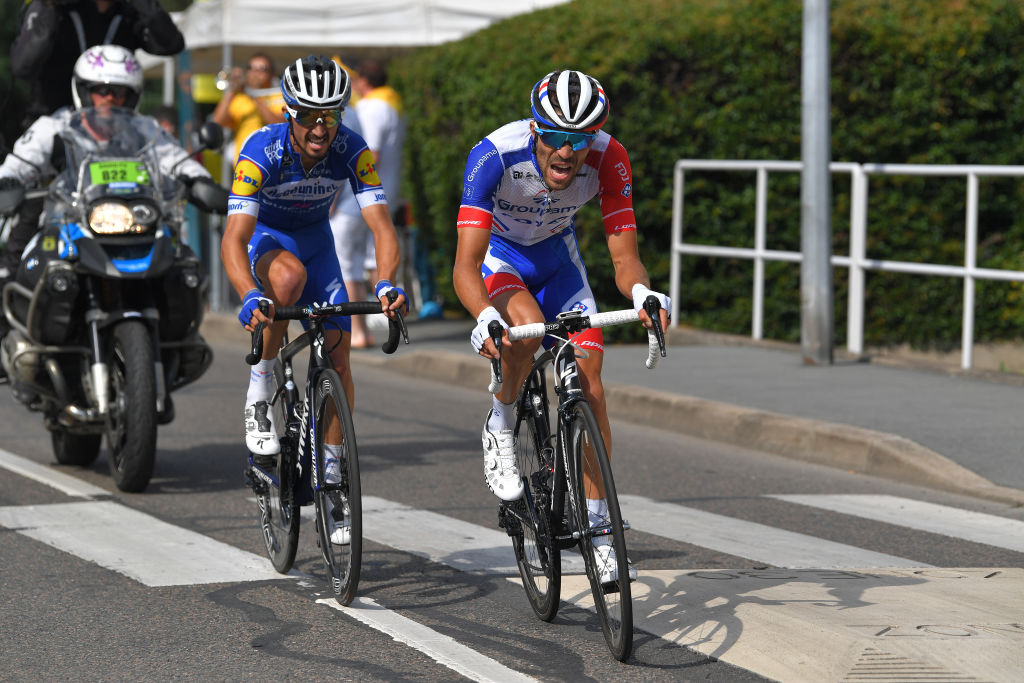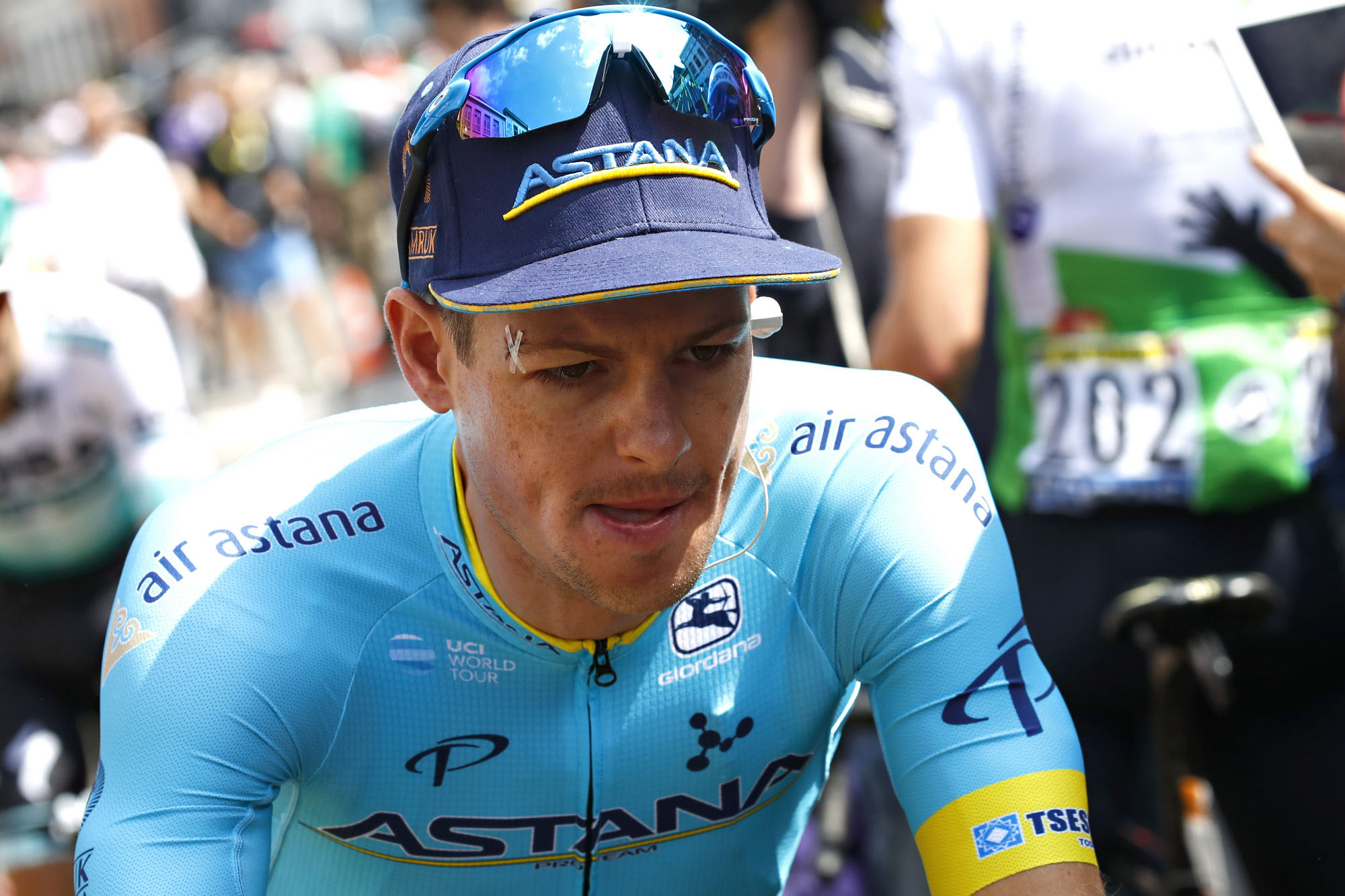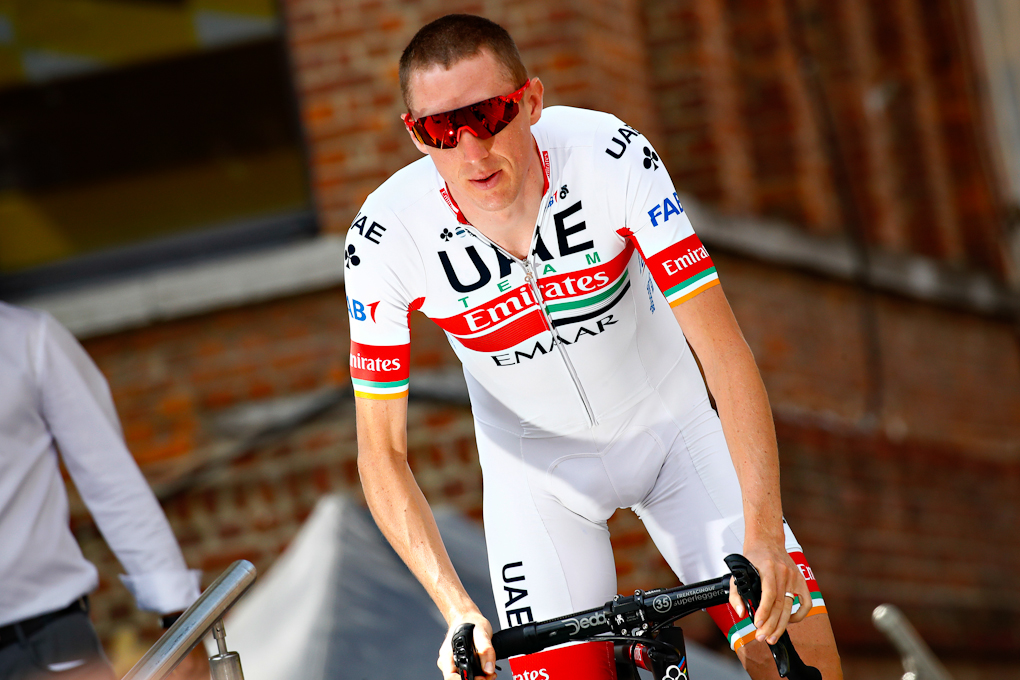Tour de France: Fuglsang calls for a minimum 50 metres between motorbikes and riders
Dan Martin says fault is not Alaphilippe or Pinot



A delegation of reporters was waiting for Jakob Fuglsang when he returned to the Astana bus after signing on for stage 9 of the Tour de France in Saint-Étienne. The first topic of discussion? His criticism the previous evening of the television motorbike that rode ahead of Julian Alaphilippe (Deceuninck-QuickStep) and Thibaut Pinot (Groupama-FDJ) in the finale of stage 8.
"Surprise," smiled Fuglsang, who joked that ASO's protection of their content meant he had been unable to watch the footage overnight. He remained of the opinion that Alaphilippe and Pinot had benefited from the slipstream of the motorbikes but stressed that the riders themselves were not to blame.
"I haven't had a look at the video – everything is restricted from the Tour so it's not so easy to find – but I'm still of the same opinion. If you go over the top full gas and the guys in front get just a little bit of draft that can make the difference. I don't blame the riders. For me it's the motorcyclists that need to get out of the way, and they have the engine to do that."
Media motorbikes are nothing new on the Tour – witness photographs of the flotilla of vehicles that surrounded Jacques Anquetil and Raymond Poulidor as they went elbow to elbow on the Puy de Dome in 1964 – nor, indeed, are concerns about their impact on the race.
Tour de France technical director Thierry Gouvenou told L'Équipe that no formal complaints had been made about the motorbikes in the finale of stage 8. "I heard the criticism, but no complaints were lodged, and the behaviour of the vehicles seemed irreproachable to me," Gouvenou said. "We issued a little reminder at the start of the stage, but nothing in the finale seemed subject to polemic to us."
A recent study carried out in Eindhoven University of Technology indicated that riders can experience a reduction in drag of 7% even when a leading motorbike is some 50 metres away. The UCI's specifications for organisers of WorldTour races state that "camera motorbikes must carry out their work without disturbing the proper functioning of the race." A precise minimum distance between motorbikes and riders is not listed in the guidelines.
"That's a poor regulation if you still get an advantage until 50 metres," Fuglsang said. "You need to make a rule that a motorbike cannot stay closer than 50 metres in front. I know that sometimes you don't get the close-up pictures you want, but if studies say that a motorbike even 50 metres away still makes a difference, then it needs to stay more than 50 metres away. They have to figure out a way to make it stay away if they don't want to influence the race."
The latest race content, interviews, features, reviews and expert buying guides, direct to your inbox!
Dan Martin (UAE Team Emirates) has long highlighted the effect of television motorbikes on races, though his concern is linked to safety as much as their impact on the outcome of races themselves. The Irishman had no specific complaint about the finale of Saturday's stage – "It's nothing to do with Julian and Thibaut, I couldn't actually see what was going on where they were" – but he has noted that the slipstream effect from motorbikes has been having a knock-on effect on conditions in the peloton throughout this Tour.
"There seem to be more motorbikes than ever in front of the race this year," Martin said. "Especially on the downhills, it's really increasing the speeds and that's making it more dangerous. On the climbs I don't mind, people need to see the action and stuff. But on the downhills, motorbikes are getting in the way and it's just getting more and more dangerous.
"The fight for position is getting more tricky. I don't think it affects the result too much, it's more the safety issue than anything else."
Like Martin, Bauke Mollema (Trek-Segafredo) has cited the influence of motorbikes on races several times before, most notably during the recent Giro d'Italia. The Dutchman revisited the topic on Sunday morning, noting that the needs of broadcasters appeared to carry greater weight than the laments of riders and teams.
"The CPA has already been complaining to the UCI. I also went to the [lead commissaire's] car yesterday, my directeur sportif went there," Mollema said. "But nothing really changes. The televisions are more in control of the race and don't listen to the UCI."
Mollema, who was trying vainly to defend the yellow jersey of his teammate Giulio Ciccone in the chasing group, believes that motorbikes are having an often telling impact in races that are decided by smaller and smaller margins.
"Riders are really close and races are decided by seconds, not only for the winner but the top five," Mollema said. "Yesterday De Gendt won by only six seconds, imagine if they took him back. Imagine if he was going for his only Grand Tour stage win of his career, it could change the career of a rider or of the race completely."

Barry Ryan was Head of Features at Cyclingnews. He has covered professional cycling since 2010, reporting from the Tour de France, Giro d’Italia and events from Argentina to Japan. His writing has appeared in The Independent, Procycling and Cycling Plus. He is the author of The Ascent: Sean Kelly, Stephen Roche and the Rise of Irish Cycling’s Golden Generation, published by Gill Books.